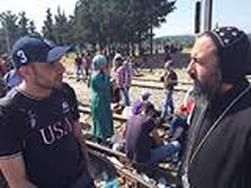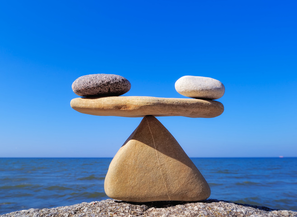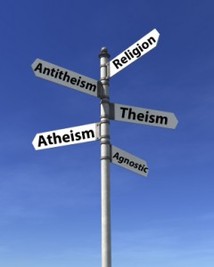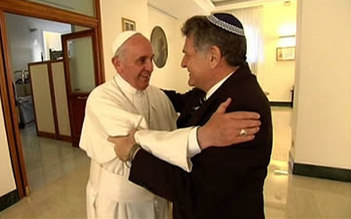
This week we spoke a lot about the current refugee crisis. Bishop Angaelos and another committee member had recently returned from a delegation visit to Idomeni on the Greek-Macedonian border where the delegates witnessed for themselves the desperation of thousands of people fleeing for their lives and taking desperate measures to try to reach safety and security, We felt overwelmed as we listened to some heart rending stories from refugees and of the criminality and exploitation, the trafficking and abandonment of people especially when borders are closed and barriers erected to keep people out. These are human beings, our brothers and sisters and while many people are volunteering to help them, many countries and governments are hardening their hearts, debating quotas and closing their borders rather than opening them up.
It's difficult for any one individual to know what to do and there needs to be some kind of organised cooperative action to deal with the situation effectively and in this surely religions have a part to play. The Director of Mission from the United Nations High Commission for Refugees told the Churches that this was a moment to put into practice chapter 25 of Matthew's Gospel. In this section Jesus identifies with the poor, the marginalised, the imprisoned and makes service to them a criteria for final judgement. The delegation were told "the discourse of God is the discourse of love and how do we embody this as Europeans?" What a challenge to the Churches and indeed to all religions. What would our countries, governments, institutions look like if they were all to embody love? This is similar to the challenge Pope Francis laid at the feet of Congress when he urged them to live and work by the Golden Rule, ' do unto others as you would have them do unto you'. 'The Golden Rule', the Pope said,' reminds us of our responsibility to protect and defend human life at every stage of development.' It got applause but will it become the criteria by which laws are made? What a world that would be!
The golden rule unites all religions. Consider
Confusionism: Do not do to others what you would not like yourself. Then there will be no resentment against you, either in the family or in the state.
Buddhism: Hurt not others in ways that you yourself would find hurtful.
Hinduism: This is the sum of duty; do naught onto others what you would not have them do unto you.
Islam: No one of you is a believer until he desires for his brother that which he desires for himself.
Judaism : What is hateful to you, do not do to your fellowman. This is the entire Law; all the rest is commentary.
Perhaps we need to be challenged to live up to these ideals. It so happened that the week before last the First Minister of Scotland held an Interfaith Summit which was attended by religious leaders and interfaith practitioners. I had to introduce the discussion on how the government could help interfaith relations and faith communities and one of the things I said was that Government could challenge faith communities more to participate in public life and work in partnership with Government on issues like refugees. In the light of that meeting and the one in London I've been thinking about this and wondering how it can be done. It struck me that perhaps the agenda for the Summit should have been abandoned and some time given to how religious communities could help with the refugee crisis, especially as the First Minister was going to a special Forum for Refugees immediately afterwards. Should an emergency meeting of the Religious Leaders of Scotland not been called by Interfaith Scotland to discuss the crisis rather than wait for their arranged meeting in November? Could the Church leaders not have done the same, working in partnership with bodies such as the Refugee Council? Is there not need for a body such as Interfaith Scotland or the Refugee Council to undertake an exercise in what I believe in the US is called asset mapping. Religious communities are a great asset in society but this has to be made visible and used when needed. I think religious communities would rise to the challenge.





 RSS Feed
RSS Feed
